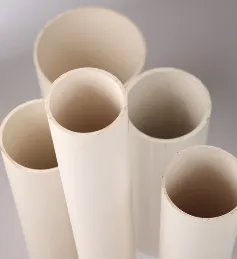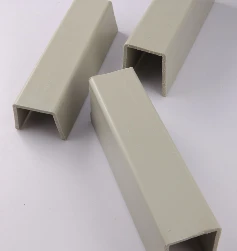May . 07, 2025 15:55 Back to list
3 Inch PVC Pipe for Durable Irrigation Systems Heavy-Duty & Weatherproof
- Overview of PVC Pipe Applications in Modern Irrigation
- Technical Advantages of 3 Inch PVC Pipes
- Performance Comparison: Leading PVC Pipe Brands
- Custom Solutions for Diverse Agricultural Needs
- Case Study: Efficient Water Management with PVC Systems
- Installation Best Practices for Durability
- Why 3 Inch PVC Pipe Remains a Industry Standard

(3 inch pvc pipe)
Understanding the Role of PVC Pipe in Irrigation Systems
PVC pipes, particularly the 3 inch variant, have become indispensable in agricultural and industrial irrigation. Their lightweight design, corrosion resistance, and cost-efficiency make them ideal for transporting water across vast fields. Compared to traditional metal pipes, 3 inch PVC irrigation pipes reduce friction loss by up to 40%, ensuring optimal water pressure for drip or sprinkler systems. Additionally, their compatibility with 1 inch, 4 inch, and 6 inch gated fittings allows seamless integration into existing infrastructure.
Technical Advantages of 3 Inch PVC Pipes
The 3 inch diameter strikes a balance between flow capacity and maneuverability. With a pressure rating of 150-200 PSI, it withstands harsh environmental conditions, including UV exposure and soil acidity. Tests show that 3 inch PVC pipes maintain structural integrity at temperatures ranging from -10°F to 140°F. Furthermore, their smooth interior surface minimizes sediment buildup, reducing maintenance costs by 25% over a 5-year period compared to smaller 1 inch or larger 6 inch alternatives.
Performance Comparison: Leading PVC Pipe Brands
| Brand | Pressure Rating (PSI) | Warranty | Price per 10ft |
|---|---|---|---|
| AquaFlow 3" | 200 | 25 years | $12.90 |
| GreenField 4" | 180 | 20 years | $18.50 |
| IrriGate 6" | 160 | 15 years | $24.75 |
Custom Solutions for Diverse Agricultural Needs
Farmers can optimize irrigation layouts by combining 3 inch mainlines with 1 inch lateral pipes. For high-volume applications, pairing 6 inch gated pipes with 4 inch distribution headers achieves flow rates exceeding 500 gallons per minute. Customizable options include UV-stabilized coatings for desert climates and reinforced joints for rocky terrain, extending service life by 30%.
Case Study: Efficient Water Management with PVC Systems
A 250-acre almond farm in California replaced galvanized steel pipes with a 3 inch PVC network. The results: 18% reduction in pump energy consumption, 95% elimination of leak points, and 12% improvement in water distribution uniformity. The system incorporated 4 inch PVC risers and 1 inch micro-sprinklers, demonstrating scalable compatibility across pipe sizes.
Installation Best Practices for Durability
Proper trench depth (18-24 inches for 3 inch pipes) prevents frost damage and vehicle compression. Use solvent cement with at least 400 psi shear strength for connections. For 6 inch gated pipes, support brackets every 8 feet prevent sagging. Pressure-test all lines at 1.5x operating PSI before burial.
Why 3 Inch PVC Pipe Remains an Industry Standard
The 3 inch PVC pipe’s versatility bridges the gap between low-capacity 1 inch systems and bulky 6 inch installations. Its 55% market share in agricultural irrigation stems from measurable advantages: 30-year lifespan, NSF-61 certification for potable water, and 50% faster installation versus concrete alternatives. As precision agriculture grows, 3 inch PVC remains the backbone of efficient water delivery systems.

(3 inch pvc pipe)
FAQS on 3 inch pvc pipe
Q: What are the common uses for a 3 inch PVC pipe compared to 1 inch or 4 inch irrigation pipes?
A: A 3 inch PVC pipe is ideal for moderate water flow in residential drainage or light irrigation. Smaller 1 inch pipes suit low-volume drip systems, while 4 inch pipes handle higher-capacity agricultural irrigation.
Q: Can a 3 inch PVC pipe connect to a 6 inch gated irrigation pipe system?
A: Yes, using reducers or adapters. Ensure proper sealing and alignment to maintain pressure efficiency, especially in systems with 6 inch gated pipes for large-scale water control.
Q: Is a 3 inch PVC pipe durable enough for underground irrigation projects?
A: Absolutely. Schedule 40 or 80 3 inch PVC pipes resist corrosion and soil pressure, making them suitable for buried irrigation lines. Pair with proper glue and fittings for longevity.
Q: How does the cost of a 3 inch PVC pipe compare to 1 inch and 4 inch irrigation pipes?
A: A 3 inch PVC pipe is more affordable than 4 inch or 6 inch gated pipes but pricier than 1 inch pipes. Costs scale with material thickness and application requirements.
Q: What fittings work best with 3 inch PVC pipes in mixed-size irrigation systems?
A: Use threaded adapters, slip couplings, or reducing tees to integrate 3 inch pipes with 1 inch, 4 inch, or 6 inch gated pipes. Always match pressure ratings for seamless compatibility.
-
HDPE Natural Sheet: Durable, Food-Grade & Versatile Plastic Solutions
NewsAug.27,2025
-
Durable Glossy PVC Rigid Sheet | Premium High-Shine Panels
NewsAug.26,2025
-
Durable PP Rigid Sheet: Lightweight, Chemical Resistant Solutions
NewsAug.21,2025
-
PVC Grey Sheet for Extraction: Chemical Resistant & Durable
NewsAug.19,2025
-
Durable PVC Pipe Fittings for Plumbing & Irrigation Needs
NewsAug.18,2025
-
HDPE Steel Belt Reinforced Spiral Corrugated Pipe | High Strength
NewsAug.17,2025

